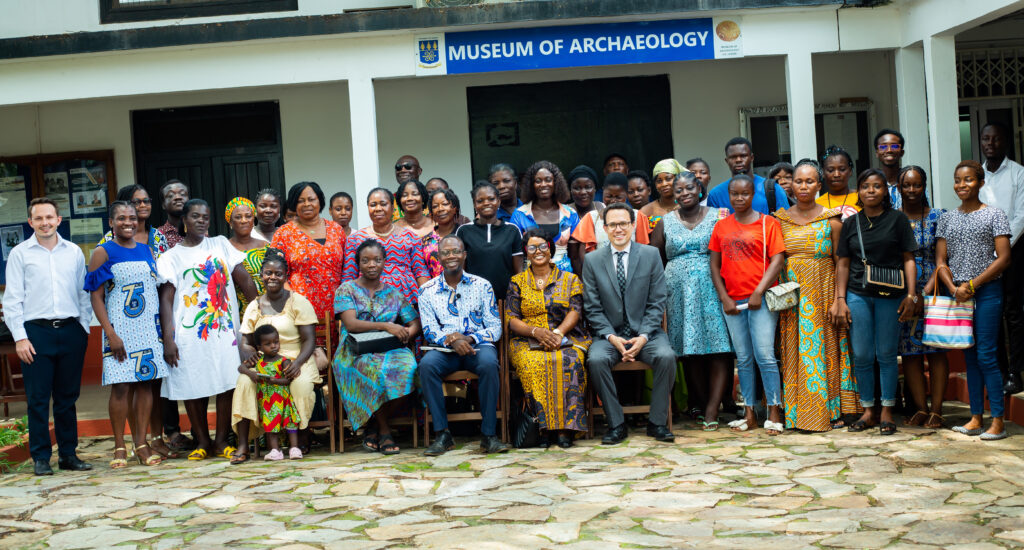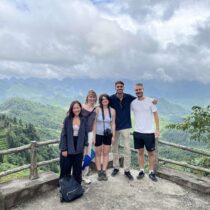Navigating Barriers in Qualitative Research
February 13, 2025Navigating the complexities of qualitative research often requires more than just a solid methodology. While conducting interviews in and around the bustling Agbogbloshie market in Ghana’s capital Accra, I encountered challenges familiar to many qualitative researchers – earning trust and building rapport. Coming from a different cultural background, my focus on chop bars, an integral part of Ghanaian culture, added an extra layer of complexity to the process. Thankfully, I was able to partner up with Isaac, a fellow student researcher from the University of Ghana. His understanding of the community, and our shared immersion in the local food scene, were crucial in gaining meaningful insights.
I traveled to Ghana as part of an ETH4D Pilot Grant to investigate the barriers to unionization in the informal food service sector as perceived by government officials and union stakeholders. We hoped that using qualitative research methods would allow us to go beyond surface-level observations. The overall aim of my thesis was to understand how collective action could be leveraged to maximize the bargaining power of these workers, ultimately contributing to a more equitable and just labor landscape in Ghana’s informal food service sector. Through our partnership with the University of Ghana and the Informal Economy Workers’ Forum Ghana (INFORUM), I was fortunate enough to interview participants from diverse backgrounds. The initial introductions, as facilitated by our partners, provided me with invaluable insights into the complexities of unionization in the informal sector. However, as I sought to expand my network beyond these initial contacts, I encountered significant challenges. The personal connections that had proven so valuable early on began to fade away, and I found myself relying more on cold calling potential interviewees. This approach, however, often poses a challenge in qualitative research because it lacks personal rapport and trust.
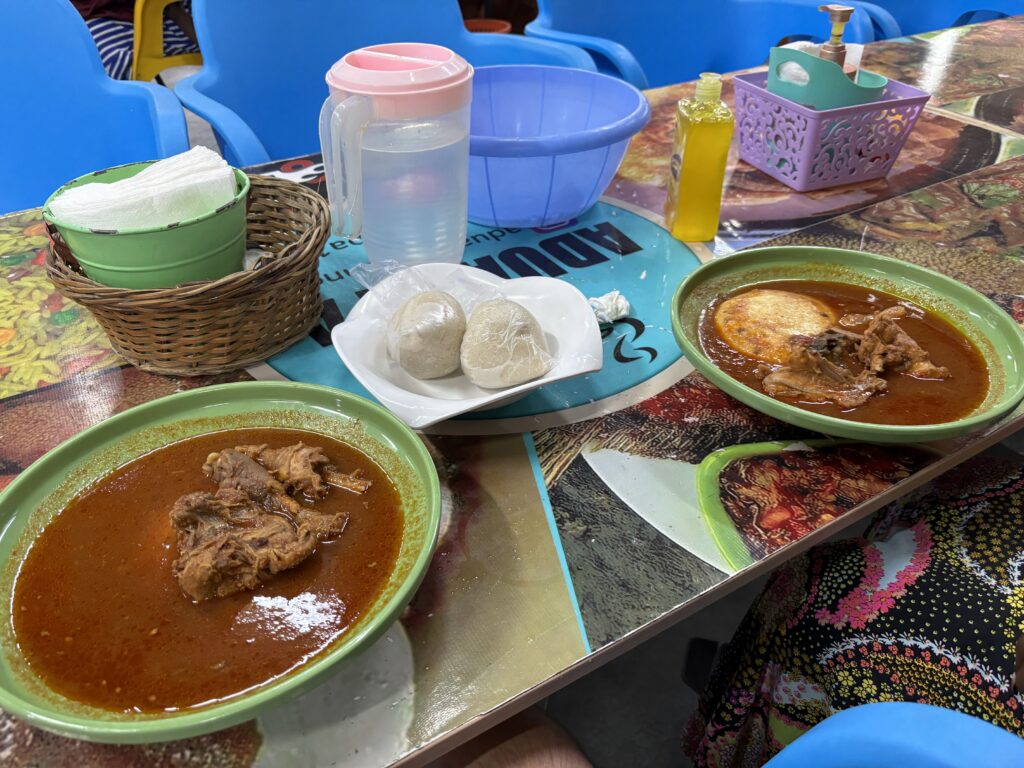
Collaborating with Isaac, my fellow student researcher from the University of Ghana, was a key turning point. Having earned his bachelor’s degree, Isaac was completing his national service at the research group we were partnering with. Together, we set off to conduct interviews and investigate the informal food service sector, where his understanding of local customs, social dynamics, and communication styles proved invaluable. He enabled interviewees to express themselves authentically in one of their local languages, Twi, helped me understand the broader cultural context of the issues we were exploring, and explained historical tensions, social hierarchies, and unspoken rules that influenced how people perceived our research. For instance, one day, as we navigated the Agbogbloshie market, he pointed out various produce, taught me about their uses and traditional preparations, and explained the importance of greeting the sellers when looking at their products to show respect.
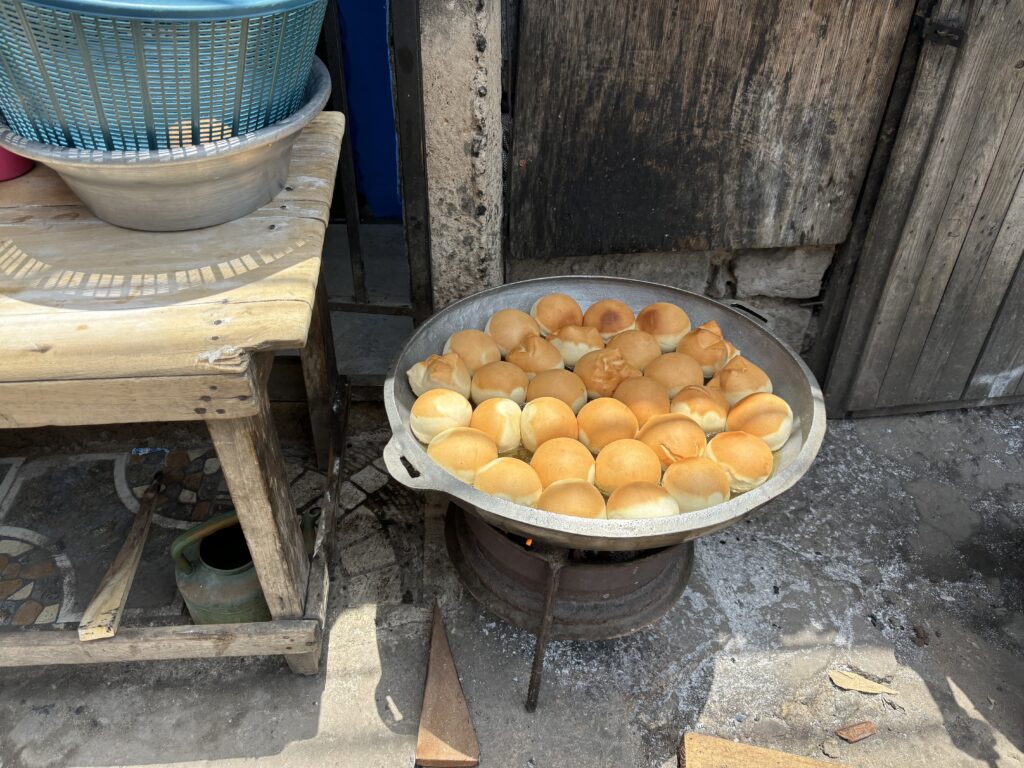
I learned other ways to demonstrate my respect and appreciation: through my new-found love for Ghanaian dishes like Gobe or Bofrot. Because food is not merely sustenance, but also a way of life, a form of expression, and a symbol of community and pride, sharing a meal can become a bridge to building deeper connection. With interviewees, sharing a meal often led to laughter and lighthearted exchanges, and then to open conversation. Beyond the culinary connections, I found that engaging in everyday activities provided invaluable insights. Whether it was attending a local soccer game or simply topping up my sim card, these experiences allowed me to observe firsthand how people interacted, communicated, and navigated their daily lives.
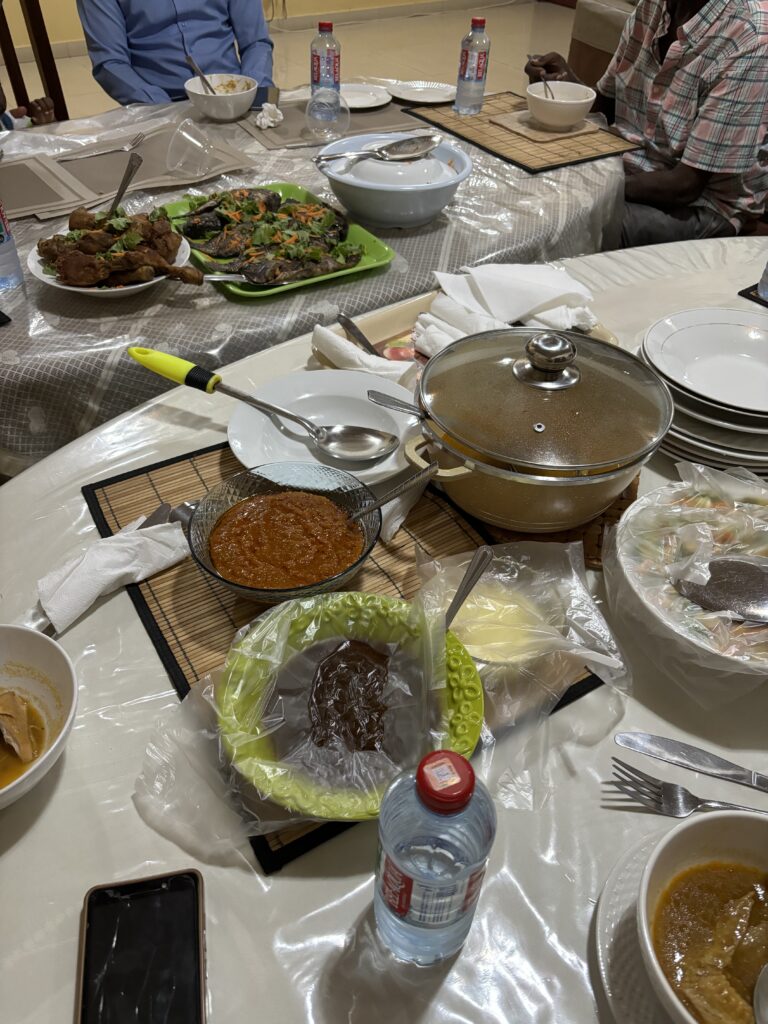
As a student researcher, I am grateful for our partners who opened doors for me, and for Isaac, who helped me navigate and expand our network, all while sharing his country and culture with me through his eyes. My time in Ghana made clear to me that shared experiences – whether through a meal with interview partners, passionate discussions about why Ghanaian Jollof is superior to its Nigerian counterpart, or simply navigating the markets with Isaac – can transcend cultural barriers and build lasting connections. This is where the power of qualitative research reveals itself. Without these moments of active engagement, picking up on the nuances of personal experience, it would have been impossible for me to develop a deeper understanding of the complexities of Ghana’s informal food service sector.
